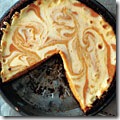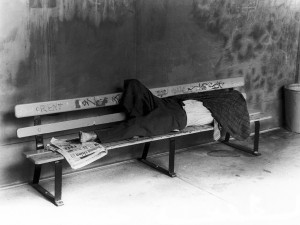Of course, there’s the usual: my health, my family and friends, the fact that I didn’t have to board a plane today and brave the madding crowd. I’ll be enjoying my turkey right here in (relatively) warm and sunny California, thank you very much.
 But this year, I do have a little something extra to be thankful for: my new two book contract. Because as many of my writing friends have recently discovered, this is a tough, tough environment for book sales. I share writing space with nine other authors. Two of them had contracts fall through in the past few months. Two others have manuscripts that their agents think would have gone into a bidding war earlier in the year: but as of right now, they haven’t had a single offer.
But this year, I do have a little something extra to be thankful for: my new two book contract. Because as many of my writing friends have recently discovered, this is a tough, tough environment for book sales. I share writing space with nine other authors. Two of them had contracts fall through in the past few months. Two others have manuscripts that their agents think would have gone into a bidding war earlier in the year: but as of right now, they haven’t had a single offer.
With the news that Houghton Mifflin has stopped acquiring manuscripts for the time being, many writers’ worst fears are confirmed. Forget the automakers: how are writers going to survive the economic downturn? Is it time for us to hand in our private jets, God forbid? If my contract had been negotiated after the crash, I suspect my publisher would never have offered the amount we settled on. In this industry, so much comes down to timing.
Of course, it’s not as though much happens between Thanksgiving and New Year’s in the publishing industry anyway. Much as they are loathe to ad mit it, it’s the only American profession that seems to mirror the European vacation calendar. Most agents won’t even bother trying to shop a manuscript this time of year. And August: fuggedaboutit. The Da Vinci Code could land in an editor’s lap and they’d toss it aside while rushing off to catch the jitney to the Hamptons. Mind you, I’m all for that. Especially since most editors spend their days in meetings and their nights and weekend working on manuscripts. It’s definitely not a job you go into for the money, by and large. So time off is well-deserved.
mit it, it’s the only American profession that seems to mirror the European vacation calendar. Most agents won’t even bother trying to shop a manuscript this time of year. And August: fuggedaboutit. The Da Vinci Code could land in an editor’s lap and they’d toss it aside while rushing off to catch the jitney to the Hamptons. Mind you, I’m all for that. Especially since most editors spend their days in meetings and their nights and weekend working on manuscripts. It’s definitely not a job you go into for the money, by and large. So time off is well-deserved.
But  since the lack of acquisitions at this time of year is largely a given, why did Houghton Mifflin even bother making the announcement? Their "temporary freeze" is a bad sign. Will it last through January, or longer? Will it spread to other houses? Does this mean that the publishing industry is throwing in the proverbial towel, and will eventually only publish a handful of titles every year about vampire detectives with difficult (but beloved) dogs who reveal religious conspiracies while recording their downward spiral into drug addiction followed by their inevitable redemption? Or, God forbid, Paris Hilton’s latest musings on hair, boys, and other national security issues? Because let’s all just admit that Paris Hilton can walk into pretty much any publishing house and get a seven figure deal before you can say "Salman Rushdie."
since the lack of acquisitions at this time of year is largely a given, why did Houghton Mifflin even bother making the announcement? Their "temporary freeze" is a bad sign. Will it last through January, or longer? Will it spread to other houses? Does this mean that the publishing industry is throwing in the proverbial towel, and will eventually only publish a handful of titles every year about vampire detectives with difficult (but beloved) dogs who reveal religious conspiracies while recording their downward spiral into drug addiction followed by their inevitable redemption? Or, God forbid, Paris Hilton’s latest musings on hair, boys, and other national security issues? Because let’s all just admit that Paris Hilton can walk into pretty much any publishing house and get a seven figure deal before you can say "Salman Rushdie."
The irony here is that all things considered, books are cheap entertainment. And historically, entertainment has done well during economic  downturns, when people need to take their minds off their troubles. Little known fact: more books sold during the Great Depression than in the period immediately before and after. Sure, in the new millennium we have many other distractions available to us, from television to video games to bulldogs on skateboards. But what if the publishing industry banded together and advertised reading as the ultimate inexpensive pastime? Something along the lines of the dairy industry’s "Got Milk" ad campaign? Who knows, it might make a difference. And hoping to shore up the industry by releasing fewer and fewer titles doesn’t seem like the best option.
downturns, when people need to take their minds off their troubles. Little known fact: more books sold during the Great Depression than in the period immediately before and after. Sure, in the new millennium we have many other distractions available to us, from television to video games to bulldogs on skateboards. But what if the publishing industry banded together and advertised reading as the ultimate inexpensive pastime? Something along the lines of the dairy industry’s "Got Milk" ad campaign? Who knows, it might make a difference. And hoping to shore up the industry by releasing fewer and fewer titles doesn’t seem like the best option.
Anyway, that’s my thought for the day. And I’m hoping that by the spring of 2010, when my renewal comes up, the economy will have recovered somewhat. Until then, I’m honing my vampire knowledge base.
As promised, my killer (no pun intended) Pumpkin/Ginger Cheesecake recipe, in case you’re in charge of dessert:
Ingredients
- 1 gingersnap crumb crust baked and cooled
- 3/4 cup sugar
- 1/4 cup chopped crystallized ginger
- 8 ounces cream cheese, softened
- 2 large eggs
- 1/4 cup whole milk
- 1 tablespoon all-purpose flour
- 1/2 teaspoon freshly grated nutmeg
- 1/4 teaspoon salt
- 1 cup canned solid-pack pumpkin (from a 15-ounces can)
Preparation
Make the gingersnap crumb crust:
- 5 tablespoons unsalted butter, melted, plus additional for greasing
- 1 1/2 cups cookie crumbs (10 graham crackers or 24 small gingersnaps; about 6 oz)
- 2 tablespoons sugar
- 1/8 teaspoon salt
- Special equipment: a 9- to 9 1/2-inch pie plate (4-cup capacity)
Put oven rack in middle position and preheat oven to 350°F. Lightly butter pie plate.
Stir together all ingredients in a bowl and press evenly on bottom and up side of pie plate. Bake until crisp, 12 to 15 minutes, then cool on a rack to room temperature, about 45 minutes.
Cook’s notes: • To make cookie crumbs, break up crackers or cookies into small pieces, then pulse in a food processor until finely ground. • For pumpkin ginger cheesecake pie, use 4 (not 5) tablespoons melted butter plus additional for greasing.
Then, for the cheesecake part:
Keep oven rack in middle position set at 350°F.
Pulse sugar and ginger in a food processor until ginger is finely chopped, then add cream cheese and pulse until smooth. Add eggs, milk, flour, nutmeg, and salt and pulse until just combined.
Reserve 2/3 cup cream cheese mixture in a glass measure. Whisk together remaining 1 1/3 cups cream cheese mixture and pumpkin in a large bowl until combined.
Pour pumpkin mixture into gingersnap crumb crust. Stir reserved cream cheese mixture (in glass measure) and drizzle decoratively over top of pumpkin mixture, then, if desired, swirl with back of a spoon. Put pie on a baking sheet and bake until center is just set, 35 to 45 minutes. Transfer to a rack and cool to room temperature, about 2 hours, then chill, loosely covered with foil, at least 4 hours. If necessary, very gently blot any moisture from surface with paper towels before serving.
They’ll love it, trust me.

